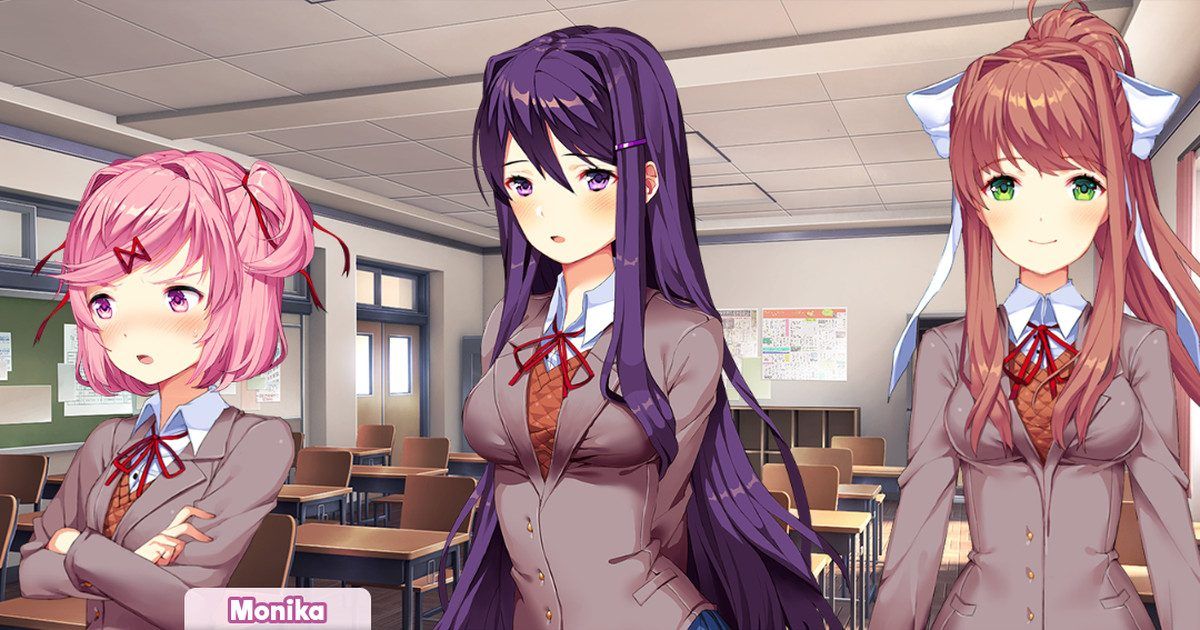An Indian news channel recently aired a special on Doki Doki Literature Club. The program delved into what the reporters called "a threat to children's lives" and urged citizens of the country to boycott the game. While video games ruining minds is still as silly a notion as it ever was, the program leaned on a tragic incident related to the game for its claims.
For the five people who don't know, Doki Doki Literature Club is a visual novel that captured the internet's attention when it launched last year and held on tight. In the beginning it looks like every other visual novel–a cutesy high school romp with anime girls. But things soon turn dark as the girls' issues come to light and they address them in very unhealthy ways.
It's these dark themes that the Indian news channel, which went unnamed in the Spiel Times breaking of this story, latched onto. The thrust of the game's "influence" hinged on an incident from February, in which a teenager named Ben Walmsley took his own life. The Indian news alleged that he was inspired by similar events in Doki Doki Literature Club.
Fueled by the conclusion that Walmsley committed the tragic act because of the game, the special program called for viewers to boycott it and even went as far as to say such games should be banned altogether in India.
In its report, Speil Times reminded readers that Doki Doki Literature Club does give a warning message when being launched. Even if there is a dark plot twist, the game makes it a point to warn certain potential players to stay away. But even if it didn't, there was never any actual evidence that concretely linked Walmsley's actions to the game. As such, accusations that it corrupts youths are unfounded at best and flat-out slander at worst.
This "special report" is just another example of a news channel creating outrage to bring in views. The unfortunate truth is, as long as art tries to tackle heavy themes, there will always be someone who objects to the message or its delivery. Art might inspire people, but the circumstances surrounding a person taking their own life tend to run deeper than that. These programs, and their viewers, would be better served doing more research and fostering genuine communication with troubled youths.




